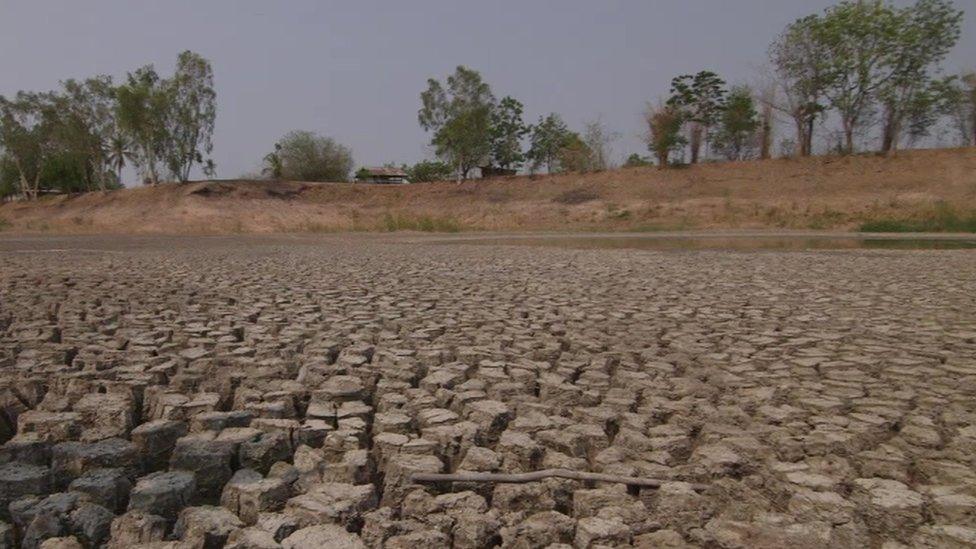Thailand to close Koh Tachai island over tourism damage
- Published
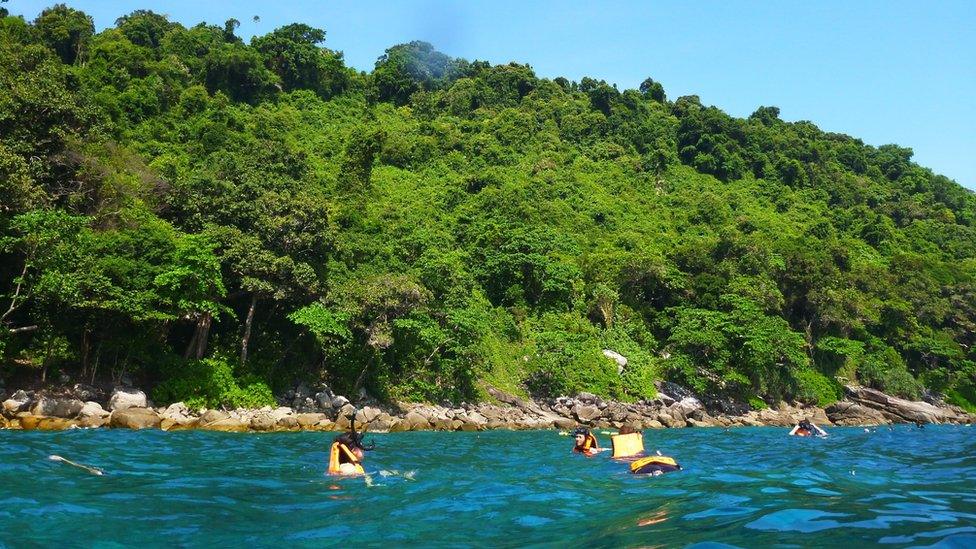
Tourists were causing "irreparable damage", reports said
Thai authorities are set to close the island of Koh Tachai, saying heavy tourism is negatively affecting natural resources and the environment.
The island, off Phang Nga province, is part of the Similan National Park.
Almost all Thai marine national parks close to tourists from mid-May to mid-October for monsoon season but Tachai will not reopen, the Bangkok Post, external says.
The park is popular with tourists and divers - who will still have access to a few dive sites in the area.
"We have to close it to allow the rehabilitation of the environment both on the island and in the sea without being disturbed by tourism activities before the damage is beyond repair," Tunya Netithammakul, director general of the Department of National Parks, Wildlife and Plants Conservation, told the Post.

Local media cited experts saying a beach on Koh Tachai could hold about 70 people, but sometimes the number of tourists was well over 1,000, along with food stalls and tour boats.
That was far in excess of the island's sustainable capacity and was causing damage that threatened to become irreversible, reports said.
Thailand draws tens of millions of tourists a year, many of them to its beautiful beaches and islands.
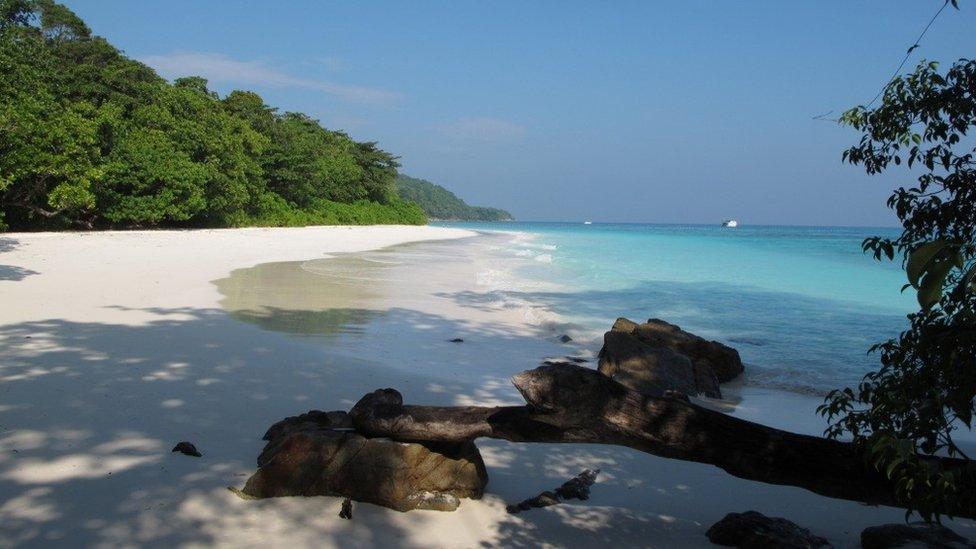
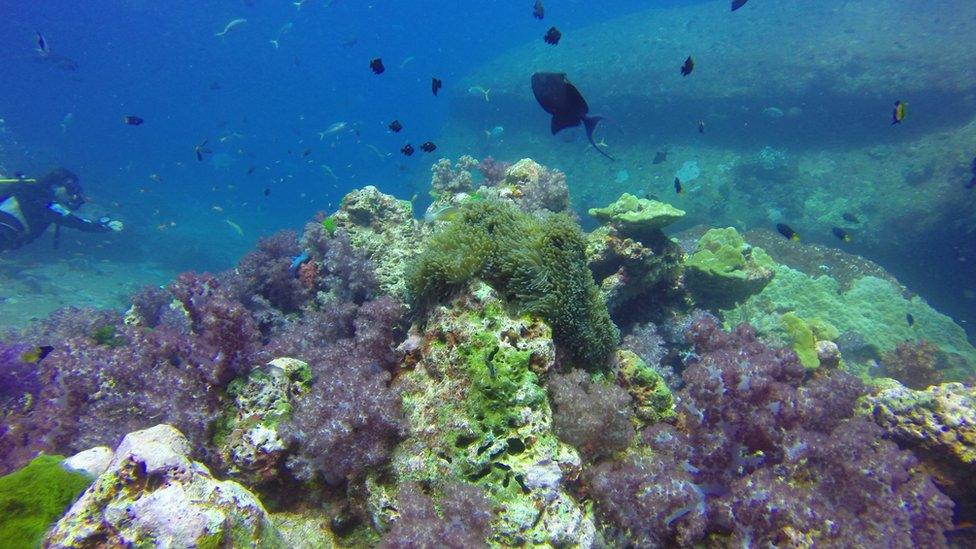

Paradise Lost: Other beauty spots adversely affected by tourism:
Phi Phi Islands in Thailand - since becoming the backdrop for the Hollywood film The Beach, this tropical paradise has come under increasing pressure as a result of an uncontrolled tourism boom.
Cozumel island, Mexico - this has become the world's second most popular holiday destination for cruise ships, causing huge damage to the Mesoamerican Barrier Reef.
Galapagos Islands, Ecuador - the unique ecosystem on this isolated island is extremely sensitive not only to growing numbers of tourists, but to the invasive species they are bringing with them.

Steve Downing from the UK snorkelled and dived on the island last year.
"It's a miniature paradise - so long as you can get away from the crowds," he said.
"Unfortunately a lot of inexperienced snorkelers tend to ruin the fragile reef systems by bashing into the corals, poking about, trying to take the best photos of fish by feeding and chasing after fish."
"People aren't interested in preserving the wildlife, they're only interested in taking photographs," he added.
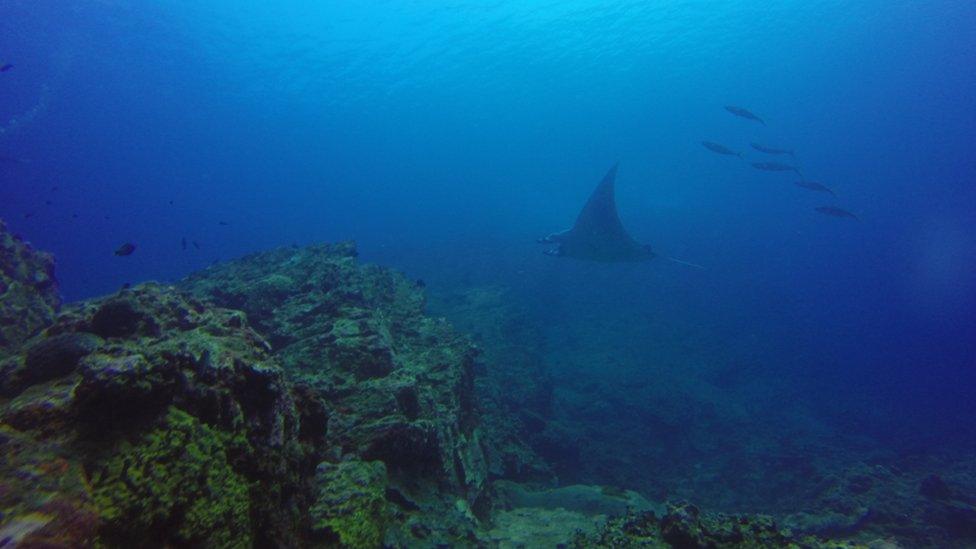
- Published26 April 2016
